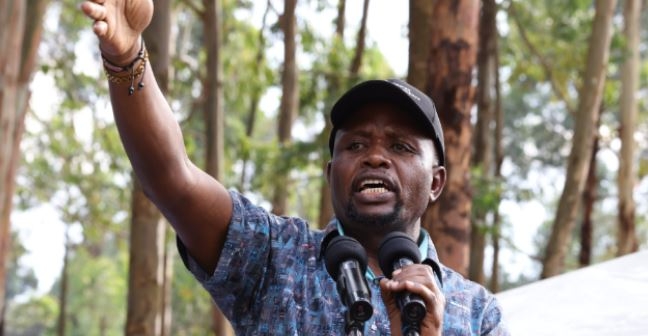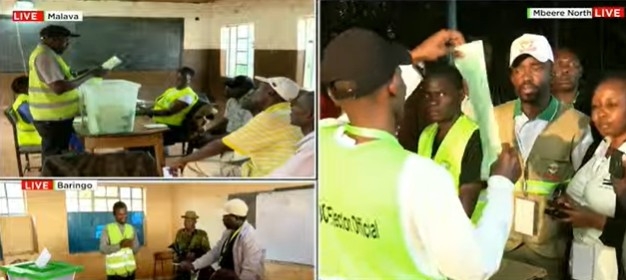In the coming weeks, the exit of commissioners from at least four independent state agencies would attract intense lobbying and jostling within government and political circles.
The vacant commissions include the Salaries and Remuneration Commission, the Independent Police Oversight Authority, the Gender and Equality Commission and the Commission on Administrative Justice.
The outgoing commissioners have already handed over their exit reports to President William Ruto ahead of the expiry of their terms in September.
The handover of exit reports has set the stage for the recruitment process for their successors, with the positions presenting low-hanging fruits for the President.
According to the Constitution, holders of constitutional commissions and independent offices serve for a non-renewable term of six years.
While various sections of the law provide for strict procedures for the recruitment of commissioners for the constitutional commissions and independent offices, politicians have in the past benefitted from some of the slots.
President Ruto could exploit the new opportunities to reward some of his close allies including political rejects who lost in the 2022 general election.
Ruto might also use the vacancies to lure more opposition figures, further cementing his relationship with opposition leader Raila Odinga following the formation of the broad-based government.
After the 2017 polls, retired president Uhuru Kenyatta picked some political losers to constitutional commissions and independent offices.
Former Rongo MP Dalmas Otieno, who resigned as SRC member in February 2022, was one of the political heavyweights who benefitted from such arrangements.
Ex-Nyeri Woman Representative between 2013-2017 Priscah Nyokabi is winding up her term of service as a member of the gender commission.
The outgoing chairperson of the Ombudsman is the former Woman Representative of Meru County who served between 2013-2017.
While receiving exit reports from the four commissions, President Ruto promised to ensure a transparent recruitment process for the positions that are due to become vacant.
“The recruitment to positions of responsibility must demonstrate true fidelity to the rule of law,’’ Ruto said.
President Ruto said he was aware that in some institutions, the terms of all commissioners expire at the same time, proposing a staggered process.
“The Office of the Deputy President, in close consultation with the Attorney-General and the constitutional commissions and independent offices, will be tasked with preparing a Bill to give effect to the legal provisions for staggered recruitment of commissioners,” he said.
The chairperson Lynn Mengich and seven commissioners of SRC took office in September 2018.
This means that their terms will end next month, except for Abdullahi Abdi who was sworn in November 2021 and Phyllis Wambui Wagacha picked in 2023.
Other commissioners appointed by the President include Amani Yuda, John Monyoncho, Leah Mumbua, Margret Sawe, Elizabeth Muchiri, Peris Ashubwe
In the recruitment of SRC commissioners, the Parliamentary Service Commission, which is represented by political parties, is one if the nominating bodies.
Other nominating bodies include the Public Service Commission, Judicial Service Commission, the Teachers Service Commission, the National Police Service Commission, the Defence Council and the Senate, on behalf of the county governments.
The provision contained in the SRC Act 2011, has been used to give the president a chance to reward political allies.
However, for the case of the chairperson, the process is done through a selection panel constituted by the President 14 days after the occurrence of a vacancy.
For the Gender and Equality Commission, the term of the chairperson Joyce Mutinda and commissioners Chomba Wa Munyi and Priscah Nyokabi ended on August 17.
Given that there was a staggered process in the recruitment of the commissioners, the term of Caroline Lentupuru andThomas Koyier will end on December 22, 2027.
The two were took oath of office on December 22, 2021.
According to the Gender and Equality Commission Act 2011, the commission consists of a chairperson and four other members recruited through a selection panel convened by the President.
In the IPOA, the membership of the board is appointed by the president with the approval of the National Assembly after a competitive process by the selection panel.
The outgoing board is chaired by Anne Makori, Walter Oweny, Doreen Muthaura, Fatuma Mohamed, Praxedes Toroney, Jonathan Lodompui and J.M Waiganjo.
The selection panel consists of the Office of the President, the Judicial Service Commission, the Anti-corruption Commission, the Kenya National Commission on Human Rights and the Gender and Equality Commission.
For the Ombudsman, the commission consists of a chairperson and two other members appointed competitively through the selection panel and approved by Parliament.
To be appointed as the chairperson, one must have knowledge and at least 15 years experience in matters relating to human rights, law, conflict resolution, arbitration or administrative justice.
One must also be a holder of a degree from a recognised university and meet the requirements of Chapter Six of the Constitution
The selection panel consists of one person from the Office of the President, the Attorney General, the Public Service Commission, the Association of Professional Societies in East Africa and the National Council for Persons with Disabilities.
The chairperson of a Constitutional Commission is a state officer with an array of benefits including a monthly salary of Sh792, 519.
A member of the constitutional commissions and independent offices earns a gross monthly salary of Sh 674,000.
Besides, holders of such offices enjoy official government transport, medical cover and mortgages at low interest rates.
Full-time constitutional commissions and independent offices are provided with an official car of engine capacity not exceeding 3000cc.
An annual medical cover is provided to the state officer, one spouse and up to four children below twenty-five years fully dependent on the state officer.
Inpatient is set at Sh10 million, outpatient Sh300,000, maternity Sh150,000, dental Sh75,0000 and optical Sh75,000.
A car loan for the chairpersons of such offices is set at Sh8 million while a mortgage is capped at Sh35 million.
The members have their car loan set at Sh6 million while the mortgage is at Sh30 million.
Such benefits are almost equal to those of an MP who earns a gross salary of Sh 725,502, a car loan of Sh8 million and a mortgage of Sh35 million.













